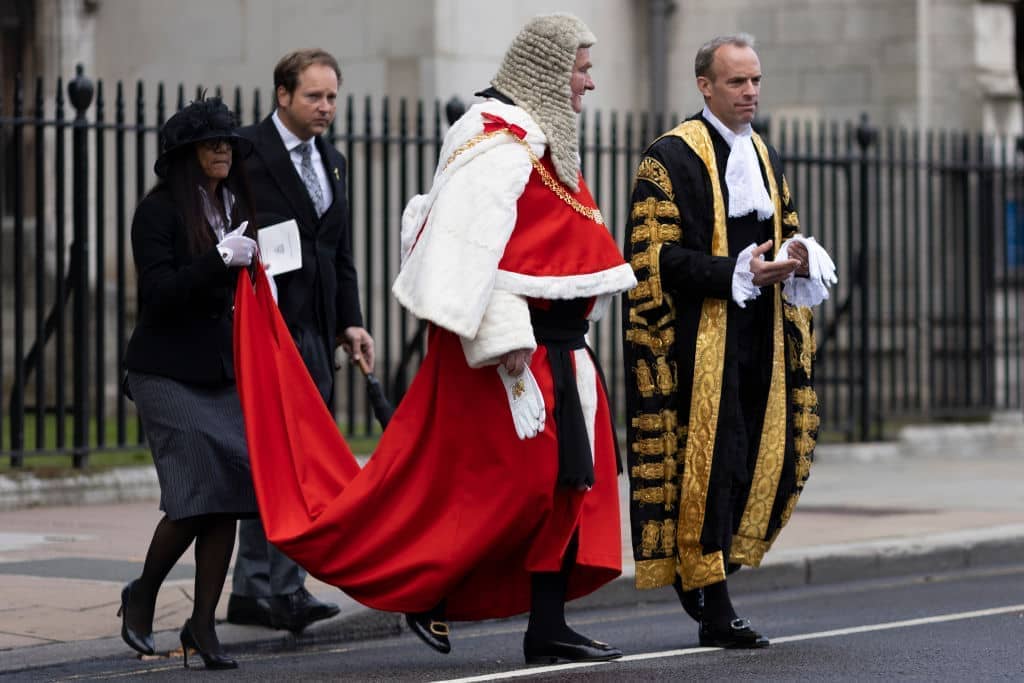For years, the Human Rights Act has cast a shadow over British politics. Its supporters claim, in the absence of a single written document in Britain’s constitution, that it upholds key freedoms; its detractors say it has been misused and hands too much power to the courts over elected politicians. Soon, this debate may be over: Dominic Raab’s Bill of Rights kills off the Human Rights Act.
‘The Human Rights Act 1998 is repealed,’ paragraph 2 of Schedule 5, of the Act says. Under the old Human Rights system, the courts were allowed to ‘interpret’ any Act of Parliament ‘in line’ with Human Rights legislation. That was always a conceptual problem for our constitution. Why? Because making law is a political action that should be carried out in parliament.
Yet Section 3 of the HRA 1998 started to look like it allowed judges to make law themselves. We knew what the words said, but judges were sometimes encouraged to pretend they said something else in order to comply with a political policy. The very idea that the Human Rights Act 1998 was anything less than perfect received a lot of scorn for many years. But there can be little doubt that it put judges in a unique and difficult position when it came to interpreting legislation.
Raab’s Bill doesn’t undermine the power of judges. If anything, it makes them more important
Now that debate is over. Britain will have a new regime. But Raab’s Bill doesn’t undermine the power of judges. If anything, it makes them more important, because it makes our Courts supreme. Section 3 says:
‘The Supreme Court is the ultimate judicial authority on questions arising under domestic law in connection with the Convention rights’
British judges will look at and consider the laws made by the Strasbourg court. But they are the ones in charge: UK courts will now defend your Human Rights. We remain in the convention. But the European court is no longer all important.
The Bill of Rights also enacts another key change that shows that our constitution is reasserting itself. One of the biggest constitutional debacles of the Blair years (at least on the subject of law) was the plan to shake up the role of the Lord Chancellor. Blair made a political decision to weaken the power of that job; but legally it has remained important. This means that Blair’s change left the Lord Chancellor in limbo.
From 2003 to 2007, Blair tried to change the job (office) of Lord Chancellor. He did this in a variety of ways and ultimately failed. And you can see it in Dominic Raab’s long and sometimes confusing title, which straddles law and politics: Deputy Prime Minister of the United Kingdom, Secretary of State for Justice and the Lord Chancellor.
The job of being Lord Chancellor is so ancient that no one really knows how old it is, though it goes back at least as far as 1066. Our constitution has also been here a while, and Britain avoided falling to tyranny in the 20th, 19th and 18th centuries. This shows that Britain’s constitution – and the role of the Lord Chancellor – has stood the test of time. That’s why Blair’s shake-up was, at best, tricky, and at worse, dangerous.
Eventually Blair gave up his Herculean struggle to ditch the post of Lord Chancellor altogether. Instead, he retained the job but ensured it now only entailed limited powers. Lord Chancellor was once the second highest role next to the King. It fell low.
The Lord Chancellor used to be a judge. He used to sit in Court with the other judges. He used to give judgment on cases. In doing so he made precedent and his cases were law. That power was never restored to the job and modern Lord Chancellors are not required to be judges or even lawyers (although Raab is a lawyer).
But our constitution has a funny way of restoring itself. I don’t know whether it does so consciously, but the Bill addresses Blair’s legal limbo. Section 40 of the Bill hands that Secretary of State for Justice (who is, by law, always the Lord Chancellor), more power through the use of Statutory Instruments. The Bill tells us that this ‘includes power to amend or modify any primary or subordinate legislation so as to preserve or restore (to any extent) the effect of a relevant judgment of a court’. That is what the Lord Chancellor used to do via court judgments; he will now, as Secretary of State, do it again but via a different type of document.
Blair’s constitutional interventions were the first conscious effort to dig around in our system for a very long time. Few of them worked – and the Lord Chancellor issues were not the greatest legal debacle. Half-done reforms may not work and it may be an immutable constitutional principle – that of the role of Lord Chancellor as originally intended – is returning. The name changes, the costume changes don’t matter, it’s the system and structure that matters.






Comments